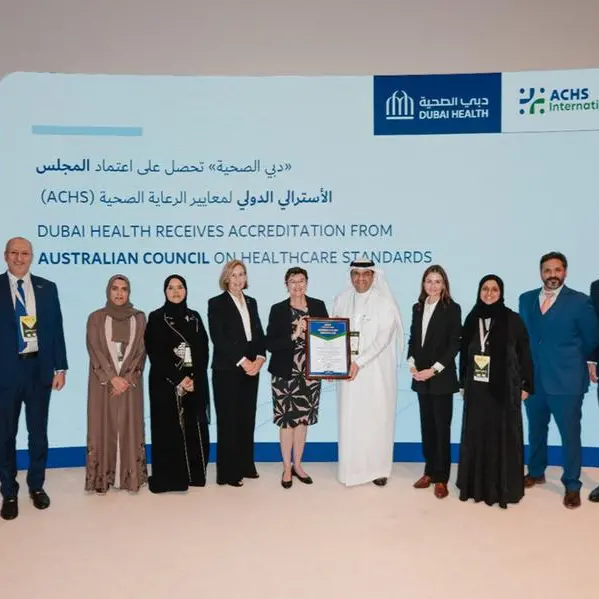
Textile and Leather promise to create masses of decent employment (including for women), and contribute to increased exports to generally build green economies of East Africa. At today’s ‘Going4Green’ conference, the International Trade Centre (ITC), which supports these priority sectors via its Supporting Indian Trade and Investment in Africa (SITA) project, supplies stakeholders with two technical reports and delivers seminars on business solutions.
SITA delivered Going4Green in partnership with Kenyan Association of Manufacturers (KAM) in a hybrid format; the conference was in-person for those based in Nairobi, and virtual for those joining from the rest of East Africa, India and ITC’s headquarters in Geneva, Switzerland.
Speaking at the start of Going4Green, Ashish Shah, Director, Division of Country Programmes, ITC, introduced SITA’s two fresh reports. Both “provide concise and actionable recommendations” for policymakers’ and business support organisations (BSOs) that are supporting the Textile and Leather sectors in the East Africa region. The reports, which reflect on the Indian Textile and Leather sectors and the expertise therein, are now officially launched and therefore available as PDFs online:
Textile and Leather are priority sectors for Sustainable Development in East Africa. However, these industries are also typically big polluters. As well as drinking up fossil fuel, Textile and Leather production impinges on the local environment quality – especially water sources. Meanwhile, the rise in sustainable consumption around the world has put large global fashion brands under pressure to be sustainable, meaning manufactures must adhere to sustainability standards in order to be competitive as a supplier. In addition, “the African Continental Free Trade Area (AfCFTA) is further pushing businesses to increase their competitiveness” – so added Miriam Bomett, Deputy Head of Policy Research and Advocacy, KAM, who was representing the co-organizers of the conference. Her point demonstrates the relevance and timeliness of the Going4Green event: with Sustainability now the key criteria against which textile businesses are compared, AfCFTA in effect adds further pressure to firms to get certified as sustainable.
Therefore, it is paramount to empower East African businesses to be compliant with the internationally agreed standards – for the sake of both the environment and the economy. In accordance, Hon Betty C. Maina EGH, Cabinet Secretary at Kenya’s Ministry of Industrialization, Trade and Enterprise Development, used her Keynote Address to reaffirm that the Kenyan Government is committed to support the Textile&Apparel and Leather sectors to meet Sustainability standards. Like all governments in the region, Kenya recognises the economic benefits of transitioning to sustainability.
Nevertheless, across East Africa, policymakers and business support organisations (BSOs) are often limited in their understanding of the international standards and have limited access to information. In the launch of today’s reports, SITA and KAM have come together to rectify this, and, in the words of Mr Shah, “support governments to establish the physical and regulatory infrastructure to ‘go green’.”
To support governments Going4Green, SITA’s reports leverage insights from the Indian Development experience. In the launch event, the High Commissioner of India to Kenya, HIs Excellency Dr Virander Paul, explained that SITA’s Renewable Energy report “is based on specific aspects of India’s renewable energy ecosystem, including the legislative and institutional aspects”, having provided a snapshot of India’s renewable energy story, which boasts “the fastest growing renewable energy capacity in the world”.
After the launch of the policy reports, SITA ran solution-based seminars to help MSMEs navigate environmental compliance for export certification, and learn ways they can access financing – a key ingredient for creating the capacity needed to become sustainable.
The day-long event gathered around 140 East African businesses, policymakers and business associations joining at the venue in Nairobi, as well as virtually On behalf of the Ministry, Hon Betty C. Maina, expressed that her team were “grateful to SITA and KAM for producing these publications, which will enable us to help SMEs to navigate through environmental compliances in green economy”.
As well as thanking manufacturers, designers, practitioners and key players in the Leather and Footwear Sectors in Kenya, Uganda, Ethiopia, Tanzania, Rwanda, ITC/SITA and KAM thank the following partners for contributing to the successful event:
- Ministry of Industry, Trade and Enterprise Development
- Indian High Commission to Kenya
The event was chaired by Anda Valla Efendija, Programme Officer, SITA, and Soumyajit Kar, Associate Programme Officer, SITA.
Distributed by APO Group on behalf of International Trade Centre.
© Press Release 2021
Disclaimer: The contents of this press release was provided from an external third party provider. This website is not responsible for, and does not control, such external content. This content is provided on an “as is” and “as available” basis and has not been edited in any way. Neither this website nor our affiliates guarantee the accuracy of or endorse the views or opinions expressed in this press release.
The press release is provided for informational purposes only. The content does not provide tax, legal or investment advice or opinion regarding the suitability, value or profitability of any particular security, portfolio or investment strategy. Neither this website nor our affiliates shall be liable for any errors or inaccuracies in the content, or for any actions taken by you in reliance thereon. You expressly agree that your use of the information within this article is at your sole risk.
To the fullest extent permitted by applicable law, this website, its parent company, its subsidiaries, its affiliates and the respective shareholders, directors, officers, employees, agents, advertisers, content providers and licensors will not be liable (jointly or severally) to you for any direct, indirect, consequential, special, incidental, punitive or exemplary damages, including without limitation, lost profits, lost savings and lost revenues, whether in negligence, tort, contract or any other theory of liability, even if the parties have been advised of the possibility or could have foreseen any such damages.



















